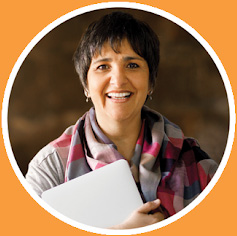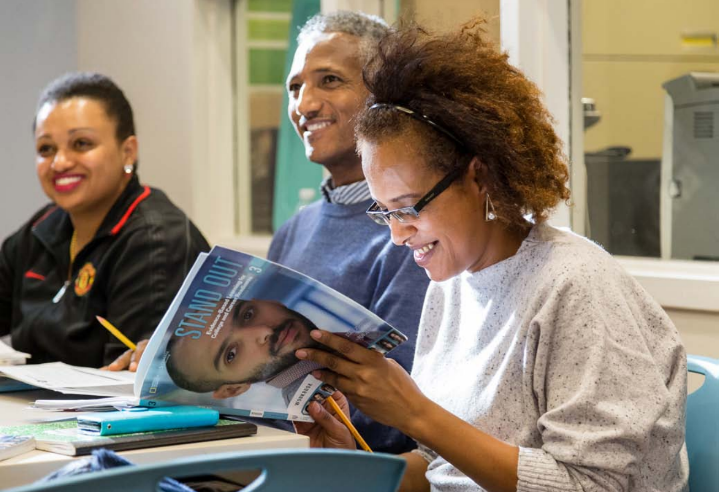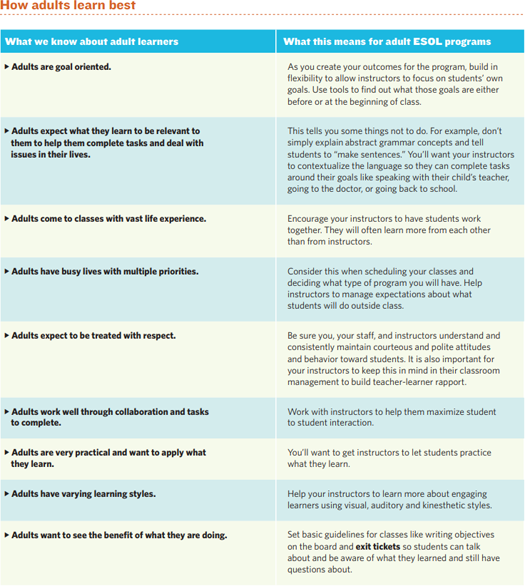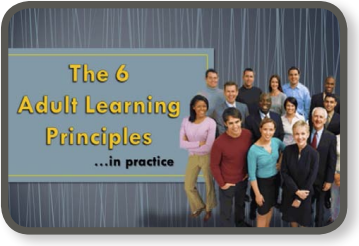-
Program
Administrator
ToolkitA Guide to Implementing and Managing Community-Based Adult ESOL Classes and Programs
-
You are here
Chapter 1: Some Basic Principles of Adult Learning
Some Basic Principles of Adult Learning
♦ PROVIDER TIPS
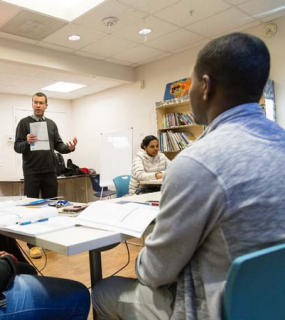
What Makes for a successful ESOL class for adults?
Patty Larson, Independent Consultant
Patty, who has taught and managed programs for Prince George’s Community College, Baltimore City Community College, and MCAEL, reflects upon her experience with adult education:
“It’s not any one element, but a combination of factors that leads to learning gains, including:
• an engaged and supportive Program Manager;
• an instructor trained in learner-driven approaches, who is skilled in developing practical lessons to address learners’ specific goals and needs;
• an understanding of who your learners are— their degree of socio-economic stability, any hardship or trauma they’ve experienced (if shared), their age, etc.—all factors that can enhance or hinder learner progress;
• establishing and monitoring progress indicators; and • conducting regular check-ins with learners to determine whether their needs are being met.”It’s not any one element, but a combination of factors that leads to learning gains
